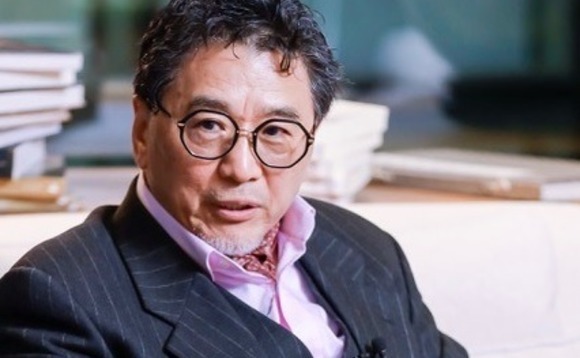
Fund focus: AGIC sticks to cross-border growth thesis

Having found its sweet spot bridging the middle markets of Asia and Europe, AGIC Capital plans to stay there – although Fund II will move earlier to capture technology hardware post-commercialization
AGIC Capital has positioned itself carefully on the Asia-Europe axis. There has always been a strong China angle: it is the growth story most European portfolio companies want to access; there is a history, albeit limited, of partnering with Chinese corporates on deals; and China Investment Corporation (CIC) was an anchor LP in Fund I, which closed at $1 billion in 2017.
Four years on, CIC has re-upped in AGIC's $1.2 billion second fund, but cross-border investments are taking place against a less-accommodating backdrop. In Europe, as globally, foreign direct investment (FDI) regulation has tightened up, with China the unnamed target. AGIC, therefore, acknowledges its China knowhow while emphasizing its role as an independent broker between two markets.
"From day one, we identified as an Asia-Europe fund targeting advanced industrial and medical technologies in Europe with large and growing application market demand in Asia. Our investment professionals are spread across two continents, with half of them in Europe," says Henry Cai (pictured), the firm's chairman and founding partner.
"We invest in companies that can tap into Asian demand with help from business and financial experts on the ground. The model benefits from huge demand for high-tech industrial and medical products in China and is not bound by the market on either ends of deal sourcing or exit."
AGIC's first investment from Fund I was a EUR925 million ($1.1 billion) acquisition of German machinery supplier KraussMaffei Group, completed in partnership with China Chemical Corporation (ChemChina) and Guoxin International. It was exited in 2018 to ChemChina, the majority partner in the original deal.
Two more exits have been completed and another announced: thin films specialist Soleras Advanced Coatings went to a Chinese buyer, but robotics supplier Gimatic was sold to a US strategic, and Europe-focused private equity firm Vitruvian Partners is set to acquire medical laser manufacturer Fotona.
AGIC is said to have received bids for Fotona from Chinese groups, including a Hong Kong-based property developer willing to pay more than anyone else. Vitruvian won out in part because it was decided this would be in the best interests of the target company. AGIC will reinvest in the business alongside the new owner.
Referencing exits in general rather than Fotona specifically, Cai says: "It's not just about price, but who can support a business going forward and whether the management team is happy or not. In Europe, they care a lot about the synergies, the complementarity nature of businesses, the combined culture."
The operational improvement initiatives AGIC drives tend to be highly China-oriented. Weak local distribution networks marshalled by third parties are a common issue. Gimatic responded by absorbing its thinly staffed distributor under a new wholly owned subsidiary. It then made 20 additional hires, broadened geographic coverage, and improved marketing and after-sales services. "Sales in China rose almost tenfold between 2016 and 2018 as we implemented the transformation," says Cai.
He notes that AGIC also introduced Gimatic to local customers such as Great Wall Motors, BYD, and Foxconn, and assisted with IT systems upgrades and patent filings. Outside of China, the private equity firm evaluated more than 30 potential bolt-on opportunities in the US, Europe, and Asia. Gimatic acquired one supplier and purchased a minority interest in one of its Italian subsidiaries.
AGIC has diversified its LP base for Fund II, with 40% of the capital coming from new investors. Cai notes there was considerable interest from the Middle East and Europe, as from the Asia, which accounted for much of the Fund I capital. Several industrial groups are among the LPs, and it is hoped they will help generate deal flow as well as making endorsements to CEOs of target companies.
Fund I made seven investments in the value-added industrial and medical technology fields, focusing on mid-market companies with $50-500 million in enterprise value. This remains the strategy for Fund II in terms of sectors – semiconductors, new materials, and autonomous driving are all of interest. However, AGIC expects to make a larger number of investments across a wider range of check sizes.
"There will be more growth-stage investment," Cai explains. "There are so many hardware companies out there that have fully commercialized technologies and are still relatively small. We want to also capture some of these opportunities before the companies grow too large for the fund."
Latest News
Asian GPs slow implementation of ESG policies - survey
Asia-based private equity firms are assigning more dedicated resources to environment, social, and governance (ESG) programmes, but policy changes have slowed in the past 12 months, in part due to concerns raised internally and by LPs, according to a...
Singapore fintech start-up LXA gets $10m seed round
New Enterprise Associates (NEA) has led a USD 10m seed round for Singapore’s LXA, a financial technology start-up launched by a former Asia senior executive at The Blackstone Group.
India's InCred announces $60m round, claims unicorn status
Indian non-bank lender InCred Financial Services said it has received INR 5bn (USD 60m) at a valuation of at least USD 1bn from unnamed investors including “a global private equity fund.”
Insight leads $50m round for Australia's Roller
Insight Partners has led a USD 50m round for Australia’s Roller, a venue management software provider specializing in family fun parks.








